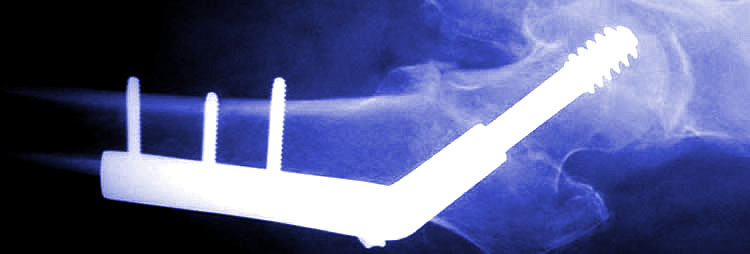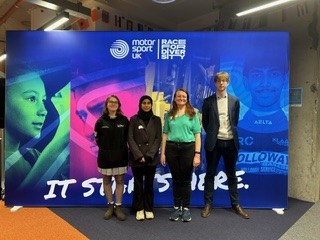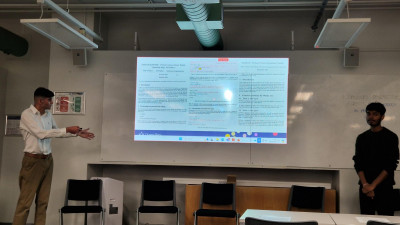Welcome to the School of Engineering and Materials Science
The School of Engineering and Materials Science was formed from Queen Mary's Department of Engineering and Department of Materials and provides outstanding degree programmes coupled with internationally leading research which is reflected in all our undergraduate programmes. Our taught postgraduate programmes are similarly first class and provide students with a fantastic opportunity to engage with cutting-edge research in: Bioengineering, Intelligent Transport, Sustainable Engineering and Engineering and Materials Education. The skills developed by our students and our extensive industrial connections provide graduates with excellent employability in stimulating and well-paid careers.
Events and Seminars
 Tue 7 Jan 2025 Tue 7 Jan 202512:00 - 13:00 | Centre for Bioengineering Meeting  |
 Wed 19 Feb 2025 Wed 19 Feb 202515:00 - 16:00 | SEMS seminars: Prof Guillaume Charras, UCL |
 Wed 5 Mar 2025 Wed 5 Mar 202514:00 - 15:00 | SEMS Seminar Series: Prof Weisi Guo, Cranfield University |
 Wed 2 Apr 2025 Wed 2 Apr 202515:00 - 16:00 | Queen Mary Bioengineering Seminar Series - Dr. Alberto Elosegui-Artola, The Francis Crick Institute |
 Wed 16 Apr 2025 Wed 16 Apr 202515:00 - 16:00 | SEMS seminars: Google DeepMind Chair of Machine Learning and AI, Professor Marc Deisenroth, UCL |
Recent publications
- Li Y, Guo T, Chen J, Wu J, Zhang Y, Alam S, Cai K and Du W (2024). Urban Air Mobility: A Review and Challenges. Institute of Electrical and Electronics Engineers (IEEE) IEEE Intelligent Transportation Systems Magazine vol. PP (99), 2-22.
04-12-2024 - Costa E, Thrasivoulou C, Becker DL, Deprest J, David AL and Chowdhury TT (2024). Role of Myofibroblasts in the Repair of Iatrogenic Preterm Membranes Subjected to Mechanical Stimulation. Wiley Prenatal Diagnosis
04-12-2024 - Yang LW, Pu JH, Xu RJ, Yang T and Wang HS (2024). Ultra-low temperature heating system based on dual-source solar assisted heat pump using compound parabolic concentrator-capillary tube solar collector. Elsevier Energy and Buildings vol. 324
01-12-2024













